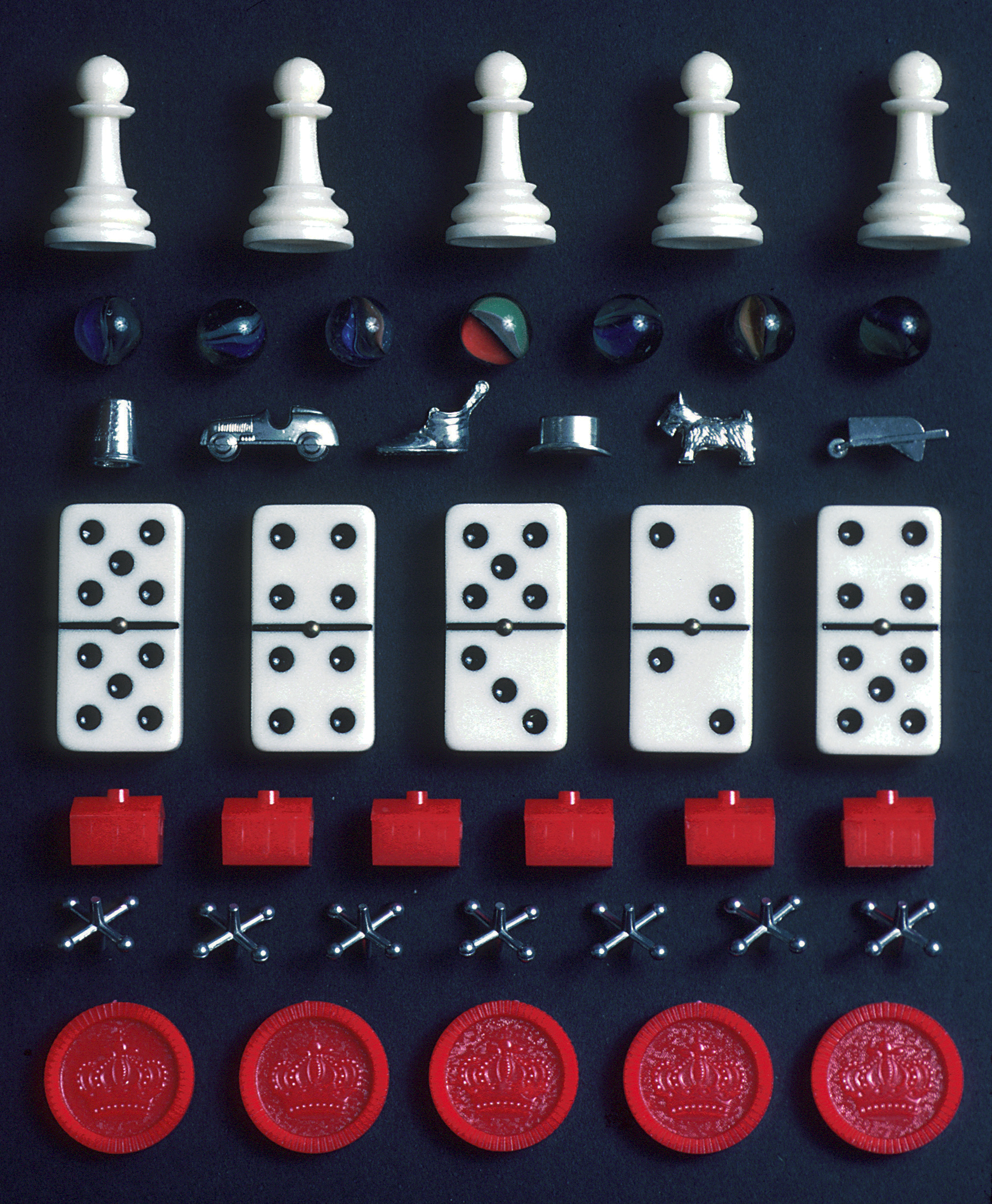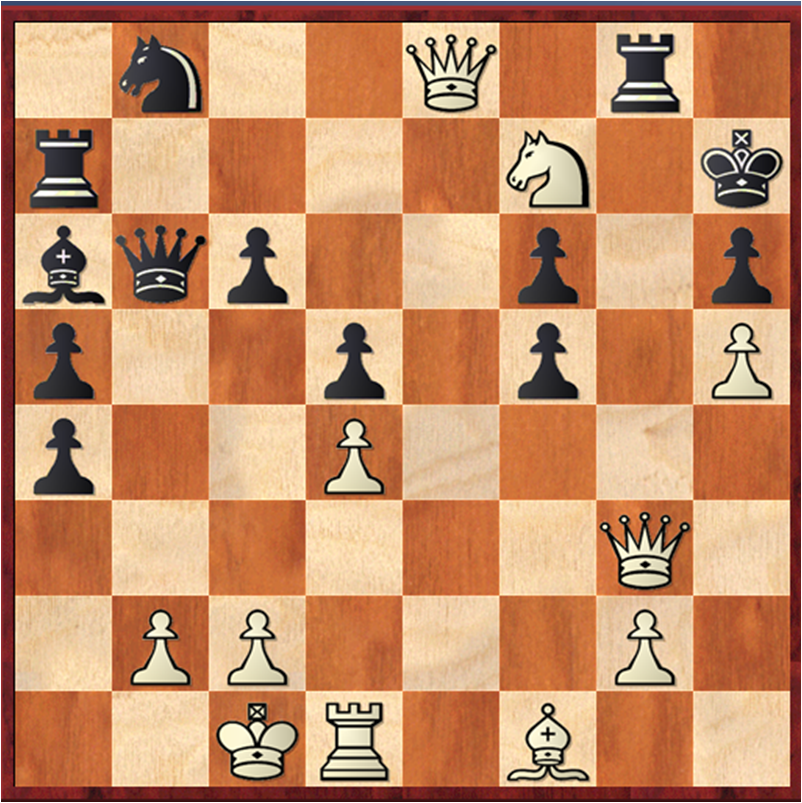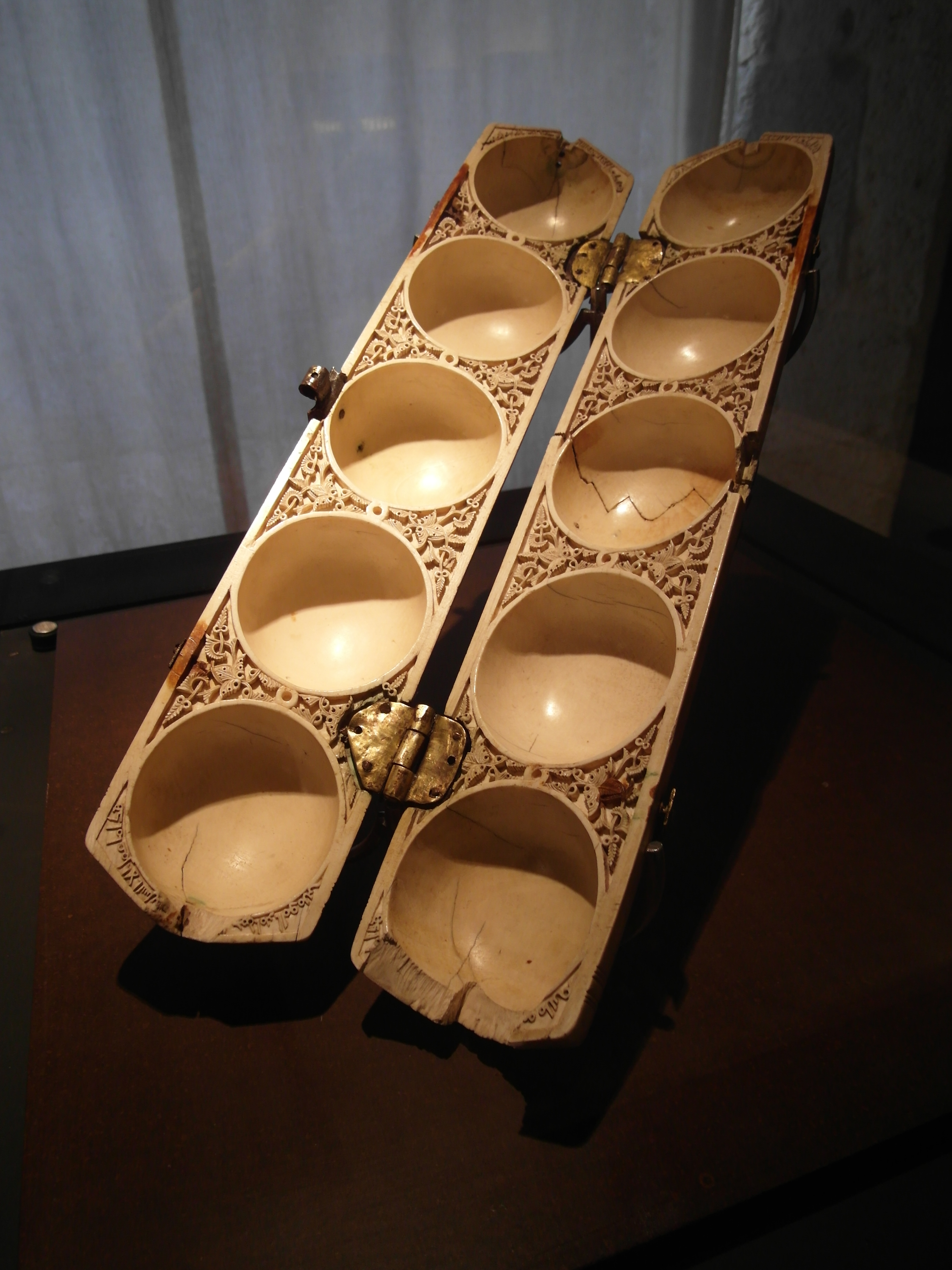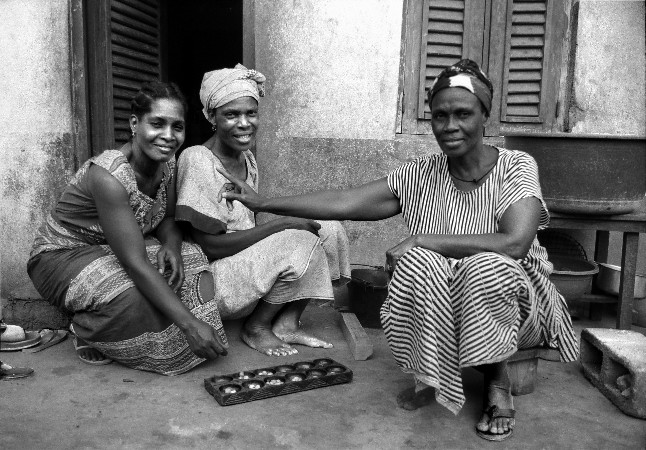|
Solved Game
A solved game is a game whose outcome (win, lose or tie (draw), draw) can be correctly predicted from any position, assuming that both players play perfectly. This concept is usually applied to abstract strategy games, and especially to games with full information and no element of chance; solving such a game may use combinatorial game theory or computer assistance. Overview A two-player game can be solved on several levels: Ultra-weak solution : Prove whether the first player will win, lose or draw from the initial position, given perfect play on both sides . This can be a non-constructive proof (possibly involving a strategy-stealing argument) that need not actually determine any details of the perfect play. Weak solution : Provide one algorithm for each of the two players, such that the player using it can achieve at least the optimal outcome, regardless of the opponent's moves, from the start of the game, using reasonable computational resources. Strong solution : Provide an ... [...More Info...] [...Related Items...] OR: [Wikipedia] [Google] [Baidu] |
Game
A game is a structured type of play usually undertaken for entertainment or fun, and sometimes used as an educational tool. Many games are also considered to be work (such as professional players of spectator sports or video games) or art (such as games involving an artistic layout such as mahjong, solitaire, or some video games). Games have a wide range of occasions, reflecting both the generality of its concept and the variety of its play. Games are sometimes played purely for enjoyment, sometimes for achievement or reward as well. They can be played alone, in teams, or online; by amateurs or by professionals. The players may have an audience of non-players, such as when people are entertained by watching a chess championship. On the other hand, players in a game may constitute their own audience as they take their turn to play. Often, part of the entertainment for children playing a game is deciding who is part of their audience and who participates as a player. A ... [...More Info...] [...Related Items...] OR: [Wikipedia] [Google] [Baidu] |
Perfect Information
Perfect information is a concept in game theory and economics that describes a situation where all players in a game or all participants in a market have knowledge of all relevant information in the system. This is different than complete information, which implies Common knowledge (logic), common knowledge of each agent's utility functions, payoffs, strategies and "types". A system with perfect information may or may not have complete information. In economics this is sometimes described as "no hidden information" and is a feature of perfect competition. In a market with perfect information all consumers and producers would have complete and instantaneous knowledge of all market prices, their own utility and cost functions. In game theory, a sequential game has perfect information if each player, when making any decision, is perfectly informed of all the events that have previously occurred, including the "initialization event" of the game (e.g. the starting hands of each player ... [...More Info...] [...Related Items...] OR: [Wikipedia] [Google] [Baidu] |
Victor Allis
Louis Victor Allis (born 19 May 1965) is a Dutch computer scientist and co-founder of the election information technology firm Activote. In his graduate work, he revealed AI solutions for Connect Four, Qubic, and Gomoku. His dissertation introduced two new game search techniques: proof-number search and dependency-based search. Proof-number search has seen further successful application in computer Go tactical search and many other games. Career Allis holds a Ph.D. in Artificial Intelligence from Maastricht University, The Netherlands, and graduated ''cum laude'' with a M. Sc. in Computer Science from the Vrije Universiteit, The Netherlands. He has more than 30 publications to his name; the majority of his published work reports on research in search technologies. He started his career in 1987 as a freelance teacher, course developer and mentor of various AMBI courses for NOVI. Allis has lectured at the Vrije Universiteit in Amsterdam as an assistant professor in artificia ... [...More Info...] [...Related Items...] OR: [Wikipedia] [Google] [Baidu] |
Connect Four
Connect Four (also known as Connect 4, Four Up, Plot Four, Find Four, Captain's Mistress, Four in a Row, Drop Four, and in the Soviet Union, Gravitrips) is a game in which the players choose a color and then take turns dropping colored tokens into a six-row, seven-column vertically suspended grid. The pieces fall straight down, occupying the lowest available space within the column. The objective of the game is to be the first to form a horizontal, vertical, or diagonal line of four of one's own tokens. It is therefore a type of ''m'',''n'',''k''-game (7, 6, 4) with restricted piece placement. Connect Four is a solved game. The first player can always win by playing the right moves. The game was created by Howard Wexler, and first sold under the ''Connect Four'' trademark by Milton Bradley in February 1974. Gameplay A gameplay example (right), shows the first player starting Connect Four by dropping one of their yellow discs into the center column of an empty game board. The t ... [...More Info...] [...Related Items...] OR: [Wikipedia] [Google] [Baidu] |
Chopsticks (hand Game)
Chopsticks (sometimes called Splits, Calculator, or just Sticks) is a hand game for two or more players, in which players extend a number of fingers from each hand and transfer those scores by taking turns tapping one hand against another. Chopsticks is an example of a combinatorial game, and is solved in the sense that with perfect play, an optimal strategy from any point is known. Description Gameplay In Chopsticks, players tally points using the fingers of both hands, with each extended finger counting as one point. A hand with less than five points is considered to be "living"; if it collects five points or more, it is "knocked out" and becomes "dead". The goal of the game is to knock out both of the opponent’s hands; the winner is the last player with a living hand. In the basic game for two players, each starts with two points—with one finger of each hand extended. Players then take turns, and on each turn must either: (1) "Attack” by tapping either of the op ... [...More Info...] [...Related Items...] OR: [Wikipedia] [Google] [Baidu] |
Amsterdam
Amsterdam ( , ; ; ) is the capital of the Netherlands, capital and Municipalities of the Netherlands, largest city of the Kingdom of the Netherlands. It has a population of 933,680 in June 2024 within the city proper, 1,457,018 in the City Region of Amsterdam, urban area and 2,480,394 in the Amsterdam metropolitan area, metropolitan area. Located in the Provinces of the Netherlands, Dutch province of North Holland, Amsterdam is colloquially referred to as the "Venice of the North", for its canals of Amsterdam, large number of canals, now a World Heritage Site, UNESCO World Heritage Site. Amsterdam was founded at the mouth of the Amstel River, which was dammed to control flooding. Originally a small fishing village in the 12th century, Amsterdam became a major world port during the Dutch Golden Age of the 17th century, when the Netherlands was an economic powerhouse. Amsterdam was the leading centre for finance and trade, as well as a hub of secular art production. In the 19th ... [...More Info...] [...Related Items...] OR: [Wikipedia] [Google] [Baidu] |
Vrije Universiteit
The (abbreviated as ''VU Amsterdam'' or simply ''VU'' when in context) is a public research university in Amsterdam, Netherlands, founded in 1880. The VU Amsterdam is one of two large, publicly funded research universities in the city, the other being the University of Amsterdam (UvA). The literal translation of the Dutch name is "Free University". "Free" refers to independence of the university from both the State and the Dutch Reformed Church. Both within and outside the university, the institution is commonly referred to as "the VU". Although founded as a private institution, the VU has received government funding on a parity basis with public universities since 1970. The university is located on a compact urban campus in the southern Buitenveldert neighbourhood of Amsterdam and adjacent to the modern Zuidas business district. As of October 2021, the VU had 29,796 registered students, most of whom were full-time students. That year, the university had 2,263 faculty members ... [...More Info...] [...Related Items...] OR: [Wikipedia] [Google] [Baidu] |
Henri Bal
Henri Elle Bal (born 16 April 1958) is a professor of computer science at the Vrije Universiteit, Amsterdam in the Netherlands. He is a well-known researcher in computer systems with a specialization in parallel computer systems, languages, and applications. Education Bal received his engineer's degree from the Delft University of Technology in mathematics cum laude in 1982. Shortly after graduating, he moved to the Vrije Universiteit where he began doing research on optimizing compilers in the Computer Systems group under the direction of Prof. Andrew Tanenbaum. This work was so promising that Tanenbaum encouraged Bal to become a PhD student in his group. Bal's PhD research led to the development of the Orca programming language, one of the first programming languages intended for large-scale cluster computers. Unlike most other parallel programming languages, Orca is based on the shared-data object model, which allows a group of computers to have the illusion that they share da ... [...More Info...] [...Related Items...] OR: [Wikipedia] [Google] [Baidu] |
Mancala
Mancala ( ''manqalah'') is a family of two-player Turns, rounds and time-keeping systems in games, turn-based Strategy game, strategy board games played with small stones, beans, marbles or seeds and rows of holes or pits in the earth, a board or other playing surface. The objective is usually to capture all or some set of the opponent's pieces. Versions of the game date back past the 3rd century and evidence suggests such games existed in Ancient Egypt. It is among the oldest known family of games to still be widely played today. History According to some experts, the oldest discovered mancala boards are in Ayn Ghazal (archaeological site), 'Ain Ghazal, Jordan in the floor of a Neolithic dwelling as early as ~5,870 BC although this claim has been disputed by others. More recent and undisputed claims concern artifacts from the city of Gedera in an excavated Roman bathhouse where pottery boards and rock cuts that were unearthed dating back to between the 2nd and 3rd centur ... [...More Info...] [...Related Items...] OR: [Wikipedia] [Google] [Baidu] |
Oware
Oware is an abstract strategy game among the mancala family of board games (pit and pebble games) played worldwide with slight variations as to the layout of the game, number of players and strategy of play. Its origin is uncertain but it is widely believed to be of Ashanti origin. Played in the Bono Region, Bono East Region, Ahafo Region, Central Region, Western Region, Eastern Region, Ashanti Region of Ghana and throughout the Caribbean, oware and its variants have many names - ayò, ayoayo ( Yoruba), awalé (Ivory Coast, Benin), wari (Mali), ouri, ouril or uril (Cape Verde), warri (Caribbean) Pallanguzhi (India) wali (Dagbani), adji ( Ewe), nchọ/ókwè ( Igbo), ise (Edo), awale ( Ga) (meaning "spoons" in English). A common name in English is awari but one of the earliest Western scholars to study the game, Robert Sutherland Rattray, used the name ''wari''. Rules Following are the rules for the ''abapa'' variation, considered to be the most appropriate for serious, adul ... [...More Info...] [...Related Items...] OR: [Wikipedia] [Google] [Baidu] |
Computer Chess
Computer chess includes both hardware (dedicated computers) and software capable of playing chess. Computer chess provides opportunities for players to practice even in the absence of human opponents, and also provides opportunities for analysis, entertainment and training. Computer chess applications that play at the level of a Chess title, chess grandmaster or higher are available on hardware from supercomputers to Smartphone, smart phones. Standalone chess-playing machines are also available. Stockfish (chess), Stockfish, Leela Chess Zero, GNU Chess, Fruit (software), Fruit, and other free open source applications are available for various platforms. Computer chess applications, whether implemented in hardware or software, use different strategies than humans to choose their moves: they use Heuristic (computer science), heuristic methods to build, search and evaluate Tree (data structure), trees representing sequences of moves from the current position and attempt to execute ... [...More Info...] [...Related Items...] OR: [Wikipedia] [Google] [Baidu] |
Endgame Tablebase
In chess, the endgame tablebase, or simply the tablebase, is a computerised database containing precalculated evaluations of chess endgame, endgame positions. Tablebases are used to analyse finished games, as well as by chess engines to evaluate positions during play. Tablebases are typically exhaustive, covering every legal arrangement of a specific selection of chess piece, pieces on the board, with both White and Black in chess, White and Black to move. For each position, the tablebase records the ultimate result of the game (i.e. a win for White, a win for Black, or a draw (chess), draw) and the number of moves required to achieve that result, both assuming perfect play. Because every legal move in a covered position results in another covered position, the tablebase acts as an oracle machine, oracle that always provides the optimal move. Tablebases are generated by retrograde analysis, working backwards from checkmated positions. By 2005, tablebases for all positions having ... [...More Info...] [...Related Items...] OR: [Wikipedia] [Google] [Baidu] |








